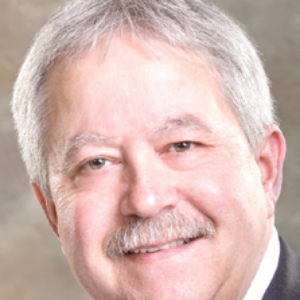It’s Roasted, 2227 Golden Blvd, 59102, 831-272-1530, Cielo Marketing Solutions, restaurant
Northwest Counseling Center, 1597 D Ste 7, 59102, 259-6161, Sarah Burke, service
Hair by Chloe, 2406 Broadwater Ave, 59102, 860-3221, Chloe Johnson, cosmetology
Montana Freestone Construction LLC, 2210 Lyndale Ln, 59102, Kelly Riddle, general contractors
RAZ Enterprises LLC, 1110 Broadwater Ave, 534-1154, Robert Zarbok, retail sales
Robert Hammond, 4110 Phillip St, 59101, 200-3117, Robert Hammond, service
Flowing Floors, 2607 Burlington Ave, 59102, 208-9793, Larry Costalez, general contractors
Hometown Mechanical Inc, 3847 Heritage Dr, 59102, 970-3153, Dennis Rumsey, service
Just Rippin Drywall, 925 Yellowjackets Way, 59106, 690-9625, Justin Delaware, service
Body Wellness, 2619 St Johns Ave Ste F, 606-9324, Moriah Mills, solo practitiopner
Town & Country Foods, 1603 Grand Ave Unit 135, 59102, 717-6200, Wayde Anderson, retail sales
Advantage Window and Glass Replacement, 610 N 24th St, 59101, 702-688-2066, Timothy Males, service
Jackson Taylor Contractors LLC, 174 Tomlinson Dr, 440-290-0391, Ed Jasinski, general contractors
MK Consulting Group LLC, 812 Alderson Ave, 59101, 855-1926, Marco Kuemmerle, service
Magic City Painting & Const, 3000 Lake Elmo Dr, 59105, Michael Schmaing, general contractors
Journey to Nowhere, 206 13th St W, 59102, 850-2508, Jeremy Meyers, retail sale
Dustin Newhall, 341 Clough Ave, Columbus 59019, 620-4863, Dustin Newhall, retail sales
Le Macaron, 112 N 28th, 59101, 320-1888, Kalena Ochsner, restaurants
Stanley Building Experts, 3028 Golden Acres, 281-3026, Albert Medlinsky, general contractors
Archadia Lila, 1613 Kelby Dr #4, 59105, 671-8335, Valerie Quigley, service
Wildly Adorned, 1613 Kelby Dr #4, 59105, 671-8335, Valerie Quigley, service
Bachmann Group LLC, 414 N word St, 208-3523, Chad Bachmann, general contractors
Creative Solutions Carpentry, 729 Avenue D, 59102, 860-4845, Michael Glenn, general contractors
The Vibe, 2545 Central Ave Ste F, 59102, 289-0883, Jordan Stoltz, restaurants
Honomichl’s Moving Service LLC, 1042 Yale Ave, Michael Honomichl, service
Zooschool, 2100 Shiloh Rd, 59106, 670-4789, Marnie Emond, schools,
All American handyman Services, 340 Nash Ln, 320-1325, Carl Hoffman, service
Level up Cheer and Tumbling, 2316 1st Ave N, 59101, 670-9210, Sara Baier, service
Dove’s Pilot Car, 262 Wicks Ln, 59105, 208-469-1456, Florian Kimball, service
1704 Event Planning, 4384 Poly Dr, 59106, 698-5508, Carrie Brewer, service
Thuy Huynh, 1690 Province Ln, 59102, 612-865-0918, Thuy Huynh, real estate rental
Sober Beginnings, 2042 green Terrace Dr, 59102, 839-7405, Kacy Keith, service
Jerry’s fly Foam, 644 Grand Ave Ste 1 East, 59101, 697-1225, Gerald Schmaing/Dyland Wiebe, retail sales
Mazabuka LLC, 310 N 13th St, 59101, 245-5847, Amanda Markel, general contractors
Northern Construction LLC, 3914 Lasso Ln, 860-2476, Kyle Kring, general contractors
No Limits Sanctuary, 4315 S Mountain View Rd, Molt 59057, 559-360-5744, Jill Fulkes, service
Elkhorn Home Services, 587 Chokecherry Pl, 59102, 670-3744, Jeffrey Hanson, service
Biomat USA Inc, 1310 Main St, 59105, 323-227-7287, David Clark, service
Miska Tonic, 2400 Saddleback Dr, Laurel 59044, 633-4156, Larry Roberts, retail sales
ZZEM Screw Inc, 2721 Enterprise Ave #2, 59102, 775-386-8867, Dean Dougherty, manufacturing
MT E-Bikes LLC dba Pedego Billings, 820 Shiloh Crossing Bllvd Ste 5, 59102, 248-1515, Mark & Tracy Rheaume, retail sales
Century Companies Inc, 510 1st Ave N, Lewistown 59457, 535-1200, Aaron Golik, general contractors
Heal Haus, 5301 Patagonia Ct #1, 59101, 890-4553, Kalen Jongeling, retail sales
Inner Balance Massage, 2020 Grand Ave #4, 59102, 998-8748, Meggan Stensland, solo practitioner
Bag of Possibilities, 620 Lake Elmo Dr #12, 59105, 855-2618, Denise Nelson, service
CK Spray, 311 Wicks Ln, 366-9823, Cody Lee, service
Rick’s Delivery Service, 3840 S Tanager Ln, 59102, 459-8292, Rick Moran, service
Bryant Contracting LLC, 1355 Pumori Cir, 59101, 850-4205, Robert Bryant, general contractors
McCuen Construction & Trucking, 1212 Bench Blvd, 59105, 945-2426, general contractors
Billings Happy Hearts Concierge LLC, 5717 Twins Way,59101, 697-7272, Karla Herman, service
Royal Purple, 546 1/2 Burlington Ave, 59101, 590-8093, Yaakov Israel, service
The Cutting Edge Salon LLC, 1918 Grand Ave, 59102, 697-0622, Jessica brown, cosmetology
Clear Trails, 104 Merion Rd, 59101, 698-6609, Mick Phillips, service
Tightlines Plumbing Inc, 116 Pertise Ave, Huntley 59037, Arley Swanson, plumbing contractors
Gigglin Grizzly Bead & Gift, 5165 Chief Brave Wolf, Laurel 59044, 855-5086, Elaine Greer, retail sales
The Drunkin Blacksmith, 5165 Chief Brave Wolf, Laurel 59044, Martin Greer, retail sales
Big Sky Arcs & Sparks Ornamental, 3507 Jene Helene Ave, 59101, 698-9077, Michael Lawrence, service
RPA Transport Solutions, 2725 Custer Ave, 59102, 281-2022, Randy Anderson, misc
Majic City Balloons, 1141 28th St W Apt 11, 59102, 818-0153, Donya Wimer/Jennider Eidson, service
Zipper Geo Associates LLC, 4221 Audubon Way, 59106, 697-7042, Michel Bullock, engineer
Ag Collective, 1702 1st Ave N, 59101, 534-1041, Tara Reiners, service
The Food Dude, 316 Laurmac Ln, Laurel 59044, 860-2686, Steven & April Dennis, restaurants
On The Clock Property inspection LLC, 5445 Rimrock Rd, 59106, 846-5580, JT Ross, service
406 Rollin Eyes, 80 Gold Pan Ln, 59106, 797-2020, Salicia Borges/Anycia Wipf, service
Without A Fuss Remodeling & Repair, 834 miles Ave, 60-5418, Tyson Betz, general contractors
Home Solutions Handyman, 4320 Marietal Dr #1, 435-359-6049, Richard La Perle, general contractors
Abundance properties LLC, 2501 Montana Ave #3, 59101, 671-4925, Lindsay Johnson, real estate rental,
JMY Investment Inc, 404 N 31st St 218, 59101, 298-5882, On Soon Kim, office only
Thrive Counseling LLC, 404 N 31st Ste 415, 59101, 617-765-2036, Corrina Hillman, service
Ashley Breit LMT, 1643 Lewis Ave Ste 2, 59102, 598-7528, Ashley Breit, solo practitioner
Gomez Cpnstruction LLC, 7543 Lewis Ave, 59106, 861-9462, Wendy Rivera, roofing contractors
JW Rent Car, 404 N 31st St, 59101, 298-5882, Ryan Jeong, office only
Jordan Hoerster Construction, 1721 Venus Cir, 59105, 591-9642, Jordan Hoerster, general contractors
Coinstar, 875 Main St, 59105, 425-943-8000, Kelly Shomler, service
White Velvet Aesthetics PLLC, 71 25th St W Unit 1, Anna Kamenieva, cosmetology
RJ Holdings LLC, 116 N 29th St Ste B, 839-1636, Jason Smith, service
Kryptonite Kutz, 1911 King Ave W Ste 12, 59102, 998-7002, Sandra Tinajero, cosmetology
Homestaed Custom Works, 1777 Birdie Ln, 59106, 850-4424, Austin Leep, general contractors
Monkey Around, 605 24th St W, 59102, 320-0273, Robert & Cassandra Mann/Ronnie & Wndy Wilshusen, service
Blackbird Solutions, 514 middle valley ddr, 59105, 850-8985, Timothy Ben Lich, service
Brenda’s Cleaning Services, 1235 Avenue F, 59102, 281-1936, Brenda Ligocky, service
Kraig Kinkaid Drywall, 3335 John O Groats Ct, 59101, 252-4969, Kraig Kincaid, service
Go Fish Gardening LLC, 1812 S mariposa Ln, 59102, 690-2646, Elizabeth Gage, service


